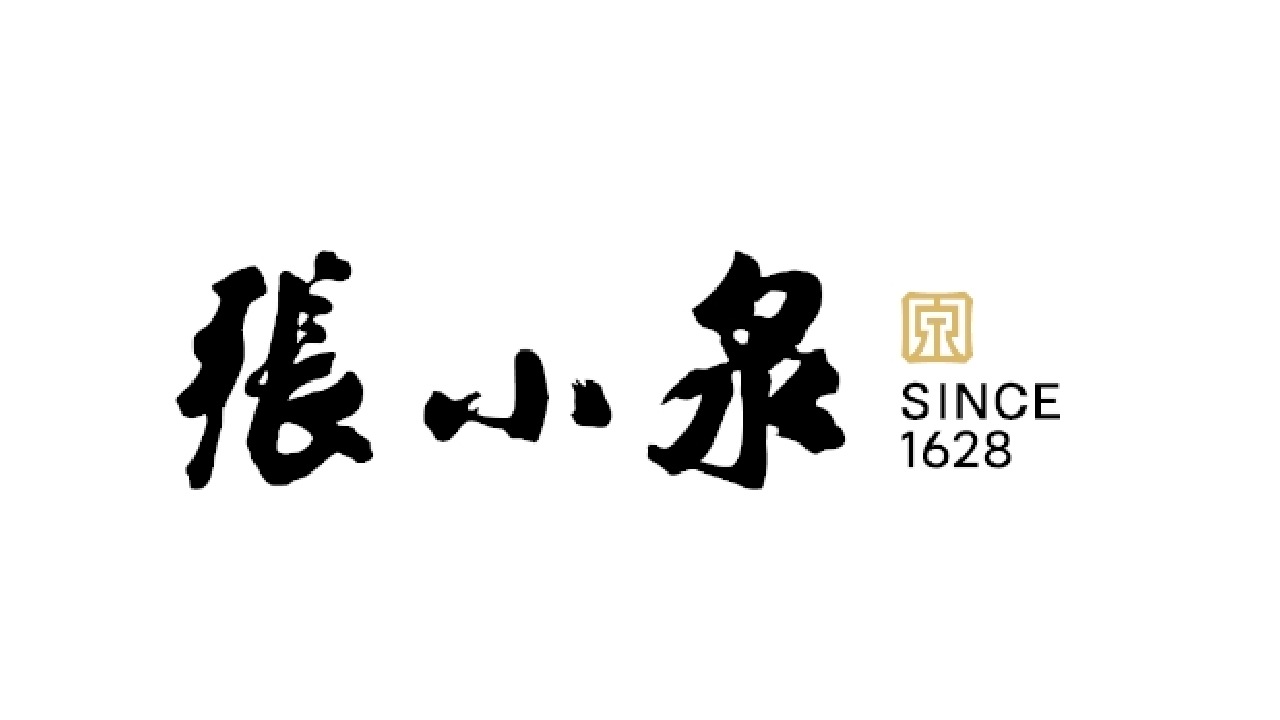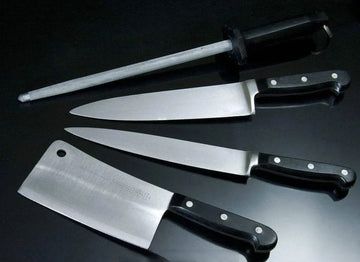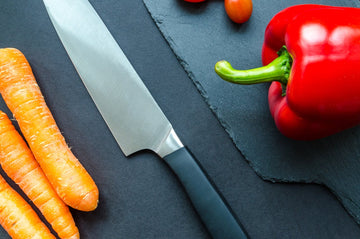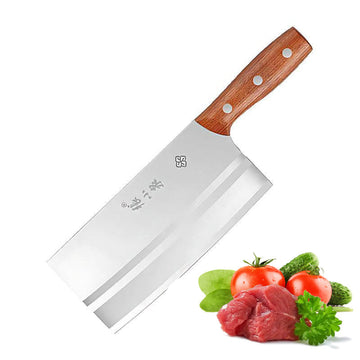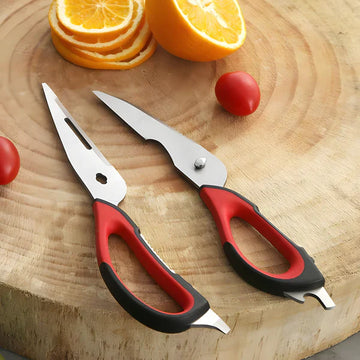When I was a young boy, my grandmother had only one kitchen knife. It was nothing special—just a simple blade she'd sharpened so many times it had grown thin in the middle. But with that humble knife, she could prepare feasts that made the whole family gather around her table. These days, finding a good kitchen knife isn't so simple. The stores are filled with Japanese knives, German knives, expensive ones, cheap ones, fancy-looking ones, and plain ones. It's enough to make your head spin.
I've spent time talking with Australian chefs, home cooks, and knife sellers to create this simple guide. Whether you have $50 or $1,000 to spend, whether you chop vegetables every day or cook meat on weekends, there's a perfect chef knife waiting for you in Australia.
Japanese Knives vs. German Knives: Two Different Worlds
In the world of chef knives, there are two main families—like two villages on opposite sides of a river. Each has its own way of doing things, and each makes wonderful knives, just different from the other.
Japanese Chef Knives: Light and Sharp as Rain
Japanese knives are like the quick, nimble children who run faster than everyone else. They're:
- Thinner and lighter, like a dragonfly compared to a bumblebee
- Made from harder steel that stays sharp longer
- Cut at sharper angles (around 15-16 degrees)
- Perfect for precise, delicate cutting—like slicing fish so thin you can see through it
- They are more easily damaged if you drop them or use them to cut bones
A chef from Chef Supply Co told me, "Japanese knives are like razor blades—incredibly sharp, lightweight, and perfect for precise cutting. They're the favorite of many professional chefs who need to make beautiful, exact cuts."
Japanese knives come with different names for different jobs: Gyuto (the all-purpose chef knife), Santoku (for slicing, dicing, and mincing), Nakiri (for vegetables), and Bunka (with a pointed tip for many uses).
German Chef Knives: Strong and Reliable as Mountains
German knives are like the solid, dependable uncles who can lift heavy things and never complain. They're:
- Thicker and heavier, like holding a small hammer
- Made from softer but tougher steel that won't break easily
- Cut at wider angles (around 20 degrees)
- Great for heavy jobs like cutting through chicken bones or tough squash
- They need sharpening more often but are more forgiving if you're rough with them
"German knives are like old friends," a chef told me. "They might not be as flashy as Japanese knives, but they'll stick with you through thick and thin, handling everything from delicate herbs to tough meat and bones without complaint."
The Best Chef Knife Brands You Can Find in Australia
Japanese Brands That Make Your Kitchen Feel Like a Professional One
Shun
If knives were shoes, Shun would be handmade leather boots—beautiful, functional, and worth every dollar. Their Classic 8-inch Chef's Knife has patterns on the blade like rippling water and stays sharp for months. You'll find them in good kitchen stores for $300-800.
One home cook told me, "My Shun knife makes me feel like a real chef, even when I'm just cutting carrots for soup. It's so sharp that the vegetables seem to split apart before the knife even touches them."
Global
Global knives are like the space-age tools from science fiction movies—one solid piece of steel with dimpled handles. The Global G-2 Cook's Knife (20cm) is especially popular in Australia. It combines Japanese sharpness with a handle that feels familiar to Western hands. Expect to pay between $150-500.
"My Global knife has been with me for fifteen years," a Sydney chef told me. "It's like part of my hand now. I can cut paper-thin slices of tomato without even thinking about it."
MAC
MAC Professional knives look simple but work like magic. Their Hollow Edge Chef's Knife MTH-80 has little dents along the blade that keep food from sticking. Kate Merker, who cooks professionally, says, "It's reliable and stays sharp, like a good friend who never lets you down."
Misono
Misono makes knives that professional chefs whisper about like secrets. The UX10 and 440 Gyuto are favorites among those who know knives well. They're not as famous as some other brands, but those who use them develop a deep loyalty.
Tojiro
Tojiro is like finding a perfectly good shirt on sale—surprising quality for the price. Their DP 3-Layer and Flash series offer professional quality without emptying your wallet. Their 27cm Cook's Knife and 18cm Nakiri are especially good deals.
German Brands That Feel Like Old Friends in Your Hand
Zwilling J.A. Henckels
Zwilling is one of the oldest knife manufacturers in the world, established in 1731. Their signature Twin knives are recognizable by the iconic logo of two figures. The Zwilling Professional S Chef's Knife offers characteristic German durability with a full-tang design and excellent balance. As one chef put it, "Zwilling knives feel like they've been in kitchens forever – trustworthy, precise, and built to last generations." Available in most kitchen specialty stores across Australia for $150-350, they represent the classic German knife-making tradition with their ice-hardened FRIODUR blades that combine hardness with flexibility.
Wüsthof
Wüsthof knives have been made by the same family in Germany since 1814—longer than Australia has had European settlements. Their Classic 8-Inch Chef's Knife feels substantial in your hand, like a tool that means business. In tests, it cut through ripe tomatoes as easily as hard carrots.
"A Wüsthof knife is like the family car that never breaks down," one Melbourne restaurant owner told me. "Nothing flashy, but utterly reliable and satisfying to use day after day."
Victorinox
Victorinox makes the famous Swiss Army knife, but their kitchen knives deserve just as much praise. The Fibrox 8-Inch Pro Chef's Knife costs just $50-150 but performs like knives twice the price. It has a comfortable handle that keeps your hand from slipping even when wet.
"In busy restaurant kitchens across Australia, you'll find Victorinox knives everywhere," a chef instructor explained. "They're the working person's knife—affordable enough that you don't panic if someone drops one, but good enough for professional cooking."
F.Dick
F.Dick sounds like a name children would giggle at, but their ErgoGrip knives are serious business. German-made with comfortable handles, they're especially common in butcher shops and professional kitchens where knives get heavy use all day long.
Other Interesting Brands Worth Knowing
Furi
Furi is an Australian-born knife brand that has gained popularity for its innovative designs and ergonomic handles. Their Pro range features an integrated bolster and unique reverse-wedge handle designed specifically to reduce fatigue during long cutting sessions. What makes Furi stand out is their patented "diamond fingers" technology and the fact that these knives are designed in Australia for Australian cooking styles. Priced between $80-200, they offer good value for home cooks wanting to support a local brand without compromising on quality. You can find them in major department stores and kitchenware shops across Australia.
Sakai Takayuki
These traditional Japanese knives have Damascus patterns that look like flowing water frozen in steel. Their 180mm Santoku is especially popular among Australian chefs who appreciate Japanese craftsmanship.
CCK Chinese Cleaver
Some cooks prefer the rectangular Chinese cleaver for vegetables. As one chef told me, "Once you get used to the weight and balance, you can chop vegetables faster than anyone with a Western knife. It's like comparing a bicycle to a car—different, but sometimes better for certain jobs."
Zhang Xiaoquan
Zhang Xiaoquan has been making knives in China since 1628. Their Traditional Chinese Cleaver has found fans among Australian chefs for its versatility and historical craftsmanship. With carbon steel blades and wooden handles, these knives offer good value at $20-100 and can be found in specialty Asian kitchen suppliers across Australia.
How to Choose a Chef Knife That Feels Right for You
The Metal Matters
Think of knife steel like different types of wood—each has its character:
- Stainless Steel: Won't rust easily, simple to care for, like a plant that needs little water
- High-Carbon Stainless Steel: Stays sharp longer but needs more attention, like a clever dog that needs regular exercise
- Damascus Steel: Beautiful patterns and excellent cutting, but expensive—like a fancy car that performs wonderfully but costs more
The Handle Should Feel Like It Belongs in Your Hand
When you hold a knife, it should feel like it was made just for you. As one chef told me, "The best knife in the world is useless if it feels awkward in your hand."
- Western handles are usually bigger with more weight
- Japanese handles are often lighter, many made from wood
- The knife should feel like an extension of your arm, not a foreign object
Weight and Balance: Heavy or Light?
"Some people like a heavy knife that falls through food with its own weight," a knife seller explained to me. "Others prefer something light they can control precisely. There's no right answer—just what feels right to you."
Try holding different knives if you can. Close your eyes and see which one feels most natural.
What Will You Cut Most Often?
Think about what appears most often on your cutting board:
- For everything from meat to vegetables, a classic chef's knife (8-10 inch) or gyuto works well
- If you cut mostly vegetables, consider a nakiri or santoku
- For mainly meat, you might want something with more weight and strength
How Much Care Are You Willing to Give?
Some knives are like high-maintenance friends who need constant attention but reward you with loyalty. Others are more independent.
"Japanese knives are like delicate flowers that reward careful tending," one chef explained. "German knives are more like sturdy garden plants that can survive a little neglect."
Where to Buy Good Knives in Australia
Specialty Knife Shops
- Chef's Armoury in Sydney and Melbourne: The first Japanese knife store in Australia, where the staff know their knives like farmers know their land
- Chef's Edge: Another good shop with knowledgeable people who can help you find the right knife
- Protooling: Recommended by many Australian knife enthusiasts for their Japanese knife selection
Online Australian Stores
- Chef.com.au: Carries many professional brands from Club Chef to Victorinox
- Chef's Hat: Good prices on premium brands like Wüsthof and Shun
- Ryda Knives: Specializes in quality knives with helpful information about choosing the right one
- Zhang Xiaoquan Australia: Official online store for authentic Zhang Xiaoquan Chinese knives and kitchen tools, with Australia-wide shipping
Final Thoughts
My grandmother would be amazed by today's knives. She might even laugh at how much we think about something she considered so simple. But she would understand that a good knife becomes part of your cooking story.
The best chef knife isn't necessarily the most expensive one or the one your favorite chef uses. It's the one that feels right in your hand, cuts the way you want it to, and makes cooking more enjoyable.
For those willing to invest in excellence, the Wüsthof Classic 8-Inch or Shun Classic 8-Inch consistently makes people happy.
If you want excellent value, the Victorinox Fibrox 8-inch Pro Chef's Knife delivers impressive performance without breaking the bank.
For lovers of Asian cooking, Global, MAC, Tojiro, and now Zhang Xiaoquan offer different experiences at various prices.
Remember what an old chef once told me: "The perfect knife is the one that feels so natural in your hand that you forget it's there—until you notice how beautifully it cuts."
